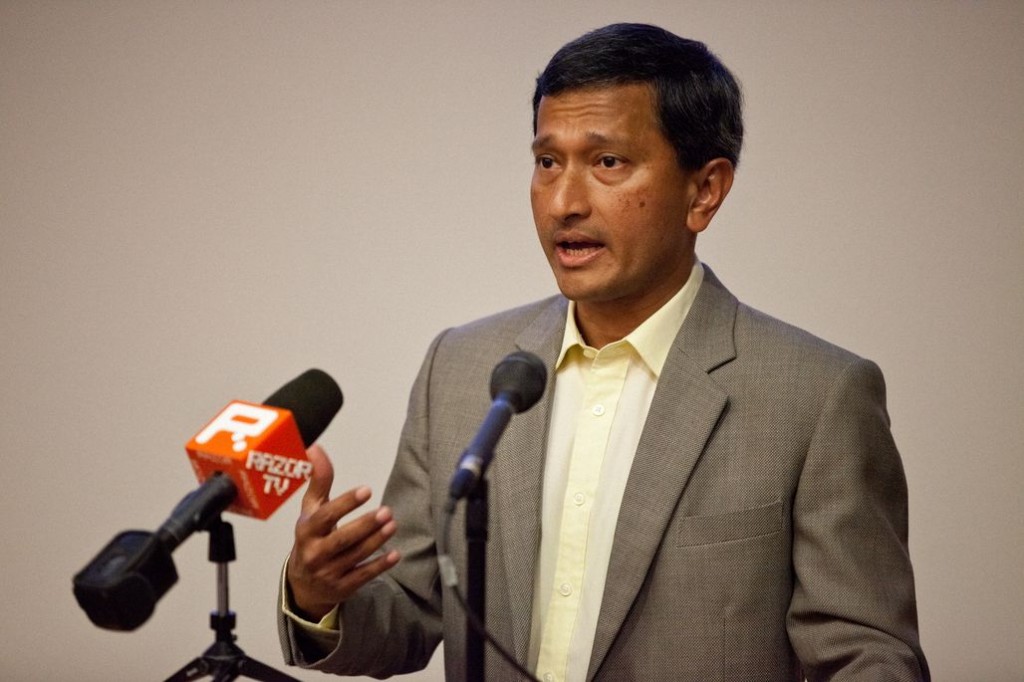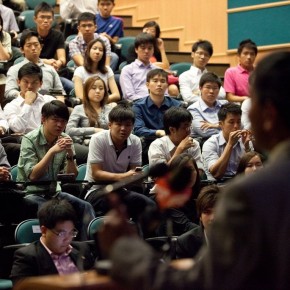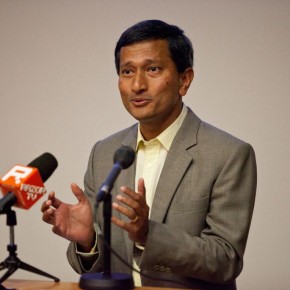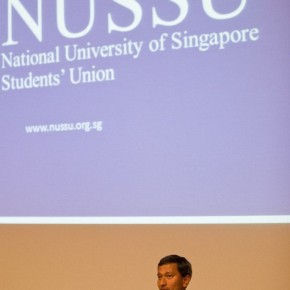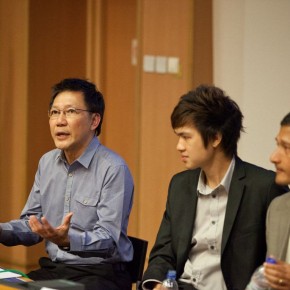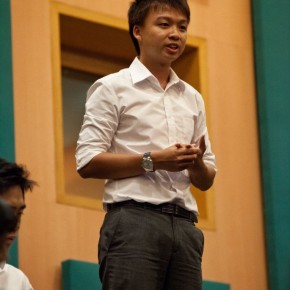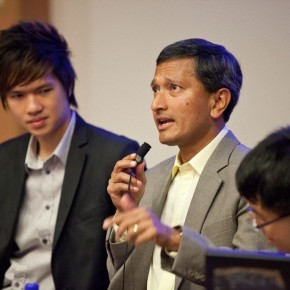There was a time when the student union was known to be a hotbed of student activism. In recent years, the perception of the student union has largely changed. Whether because of growing apathy or just plain disillusionment, many no longer see the student union playing an active role in the university or as the vanguard of student interest. It is with these concerns in mind that the Union Forum 2012 was organised, to bring together all the student unions from the four publicly-funded universities in Singapore to discuss and review the changing role of the student union.

Mr. Soh Yi Da, President of the Political Association, NUS, said, “we [student leaders] can move beyond just concentrating on welfare issues and move to broader issues that concern the nation.” Indeed, many members of the past National University of Singapore Student Union (NUSSU) Exco have gone on to take up prominent positions in Singapore politics including Mr. Steve Chia from the National Solidarity Party and Dr. Vivian Balakrishnan from the People’s Action Party. This trend of student leaders moving up to become national leaders should spur the student leaders to concern themselves with not just welfare issues but other questions that concern the place of the tertiary student in the nation.
Dr. Balakrishnan, Minister for Environment and Water Resources, was the guest-of-honour for the Union Forum 2012. In his speech addressed to all the student leaders seated in LT12, he recollected several personal anecdotes from his time in the NUSSU Exco.
Among those memories, he spoke of how he wrote, in his personal capacity, a letter to the Straits Times forum, on 1 February 1984, criticising the Government’s Graduate Mother Scheme.
Whilst encouraging student leaders to “promote the welfare and interests of students” and “to be aware of what is happening in society”, he categorically stated that the student union is not a political platform.
He remarked that “the Union is supposed to represent all undergraduates … you [the Union] do not only represent Singapore citizens but we wanted only Singapore citizens to have the right to speak and participate in political matters.”
For this reason, the Political Association was created, separated from the NUSSU Exco, and given the exclusive right to comment on political matters involving Singapore.
Mr. Soh Yi Da, President of the Political Association, NUS, said, “we [student leaders] can move beyond just concentrating on welfare issues and move to broader issues that concern the nation.”

Although it was now clear that the Union is not a political platform, it was still not clear what role the Union can and should perform. Is the Union merely a student body that distribute welfare goodies? Throughout the Q&A session, the student leaders in the audience offered up many alternative visions of what a student union should be.
To fully define what the role of the student union should be, we must first understand the historical context. Not many are aware that the National University of Singapore Student Union (NUSSU) is actually a formal organisation that is constituted by the legal provisions in National University of Singapore (Corporatisation) Act, Chapter 204A, Section 19.
The NUSSU representatives have been active in pushing for policies that will represent the interests of the student through various platforms. For example, in a recent closed-door ministerial dialogue, attended by the student union representatives of the three universities (NUS, SMU and NTU), with Education Minister, Mr. Heng Swee Keat, many important student issues were highlighted. These issues include the affordability of tertiary education, the need to integrate the growing number of international students as well as the need for more recognition of non-academic student activities such as community service.
In addition, responding to a question on platforms for the student union to raise up issues affecting students with government officials, A/P Tan Teck Koon replied, “I’m glad that our students [from NUSSU] do go up to speak with the ministers.” A/P Tan Teck Koon is the Dean of Students from the Office of Student Affairs, NUS.
The student union has already been involved in so many issues, what else should they concern themselves with and what can be improved?
One of the issues that cropped up during the Q&A session was the idea of competing university identities. With the relatively new setup of the Singapore University of Technology and Design (SUTD), Singapore now has four publicly-funded universities. This is vastly different from the student days of Dr. Balakrishnan when Nanyang University merged with the University of Singapore to form the National University of Singapore (NUS).
“It [competing university identities] is not a zero sum game … each of you can belong, can take pride and can contribute to your respective alumni,” he added.
Not many are aware that the National University of Singapore Student Union (NUSSU) is actually a formal organisation that is constituted by the legal provisions in National University of Singapore (Corporatisation) Act, Chapter 204A, Section 19.
Another issue is that of the renewal of student leadership. Many unions suffer from a lack of participation and many among the audience were curious to find out how to encourage younger freshmen to join the student union.
“The truth is that if you do a good job, nobody will thank you. If you ‘cock up’, everybody will jump on you,” said Dr. Balakrishnan, echoing the unspoken sentiments of everybody who has had to organise any sort of team or event.
Perhaps one of the most controversial topics that were mentioned during the forum was the issue of compulsory subscription fees. The position of NUSSU remains that the subscription fees should not be on an opt-out basis.

Mr. Ang Yu Qian, 33rd NUSSU Council President, explained that “we [NUSSU] do not want to polarise the student community. If 50% opt in and 50% opt out, the union will move towards a more corporate model that focuses on profits instead of our core competencies.”
The current subscription fee of $24 is distributed evenly to the faculty clubs, constituent clubs and the NUSSU Exco. The subscription fees remain a significant source of revenue to continue the operation of these various student activities.
As students engaged in a lively discussion about what the union should or should not do, the definition of what role the union should take, remained unresolved. It is unlikely that one forum would resolve all the internal contradictions that make the relationship between students and the student union such a love-hate affair.
Nevertheless, the fact that the Union Forum was initiated suggests that student leaders are keenly aware of the need to clearly define the roles and responsibilities for which they were entrusted to through elections by the student populace. The role of the Union will certainly continue to evolve as the interests of students change and as Dr. Balakrishnan concluded:
“You [the student leaders] are living through a revolution, the future is not guaranteed but you have a ringside seat to it.”
———————————-
All photos credited to Shawn Danker:


